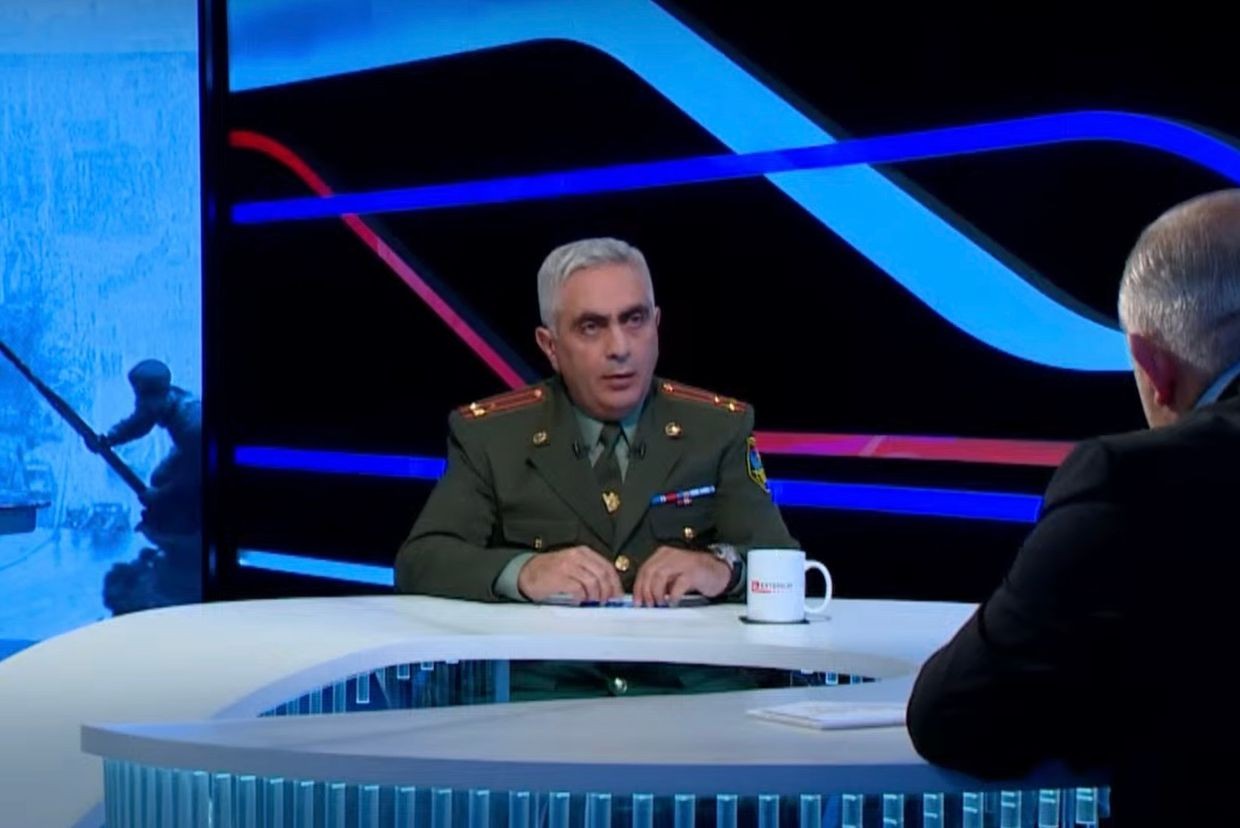
On 9 May, as Armenia, along with Russia celebrated the USSR’s victory over Nazi Germany, Armenian Public TV aired an interview with military expert Artsrun Hovhannisyan who sought to debunk myths about World War II that have been widespread in the country for decades. During his interview, Hovhannisyan questioned the importance of the Battle of Stalingrad for Armenia, sparking criticism online.
The interview was aired on primetime TV, with host Petros Ghazaryan saying that they would try to debunk myths around WWII.
Hovhannisyan also highlighted that any phenomenon becomes ‘a tool for propaganda, myth-making, and serving political interests’ and that Armenians were ‘under Communist rule and Communist propaganda for about half a century after [the war]’.
Among other issues, Hovhannisyan suggested that one of ‘the most burdensome myths’ for Armenia was that the Battle of Stalingrad supposedly saved Armenia from a Turkish invasion.
‘At the time, Turkey had no significant capability to launch an attack, open a new front in the Caucasus. It's a myth’, Hovhannisyan insisted, adding that in contrast to that, as proven by archival documents, Nazi Germany had a plan called Operation Gertrud.
According to Hovhannisyan, Operation Gertrud anticipated that following Stalingrad, Germany sought to redirect troops south to capture the Caucasus.
‘But if such a thing were to happen, the Germans would have invaded and captured Turkey both from Armenia and from Bulgaria. That plan also envisioned the creation of a united historical Armenia’, Hovhannisyan said, adding that the attack on Turkey would have taken place already from an independent Armenia that Nazi Germany would have supposedly helped create.
Serving as the spokesperson for the Defence Ministry during the Second Nagorno-Karabakh War, Hovhannisyan is no stranger to controversy, and has been largely discredited for miscommunicating events and failing to accurately reflect the situation on the ground.
Hovhannisyan’s comments about the Battle of Stalingrad caused outrage online.
In comments in parliament on Monday, Artsvik Minasyan the head of the opposition Armenia Alliance Faction, urged the Prosecutor General Anna Vardapetyan to ‘conduct a legal examination and give an assessment’ regarding Hovhannisyan’s statements, which he said were ‘aimed at justifying or downplaying the danger of Nazi Germany and Hitler’s regime’ by distorting history.
Minasyan additionally noted that in his statement, Hovhannisyan made an attempt to stir up emotions by saying that ‘Hitler's Germany wanted an independent Armenia’ and rebuild historical Armenia.
The Russian state-run media outlet Sputnik Armenia commentator Arman Abovyan said during his show that the claims of Hovhannisyan were an example of his ‘sickening villainy’ and an ‘insult to the memory’ of the 300,000 Armenians who died during World War II.
‘Let me remind you that more than 40 divisions were massed on the Turkish side, on the border of Soviet Armenia and Turkey. And if the Soviet Union had lost the Battle of Stalingrad, then Turkey would have entered [Armenia]. It would have stepped in and completed its “mission” of the Armenian Genocide’.
In turn, Ghazaryan wrote in a post on Facebook that the reactions to Hovhannisyan’s statement reminded him of a ‘mental hospital’.
‘I don't know if this group of wandering liars is being fed by Russia or by locals, but they are definitely throwing money away’, Ghazaryan wrote.
The interview of debunking the myths came amidst a new round of political crisis with Russia, after the bilateral relations appeared to be improving in the recent months.
On 5 May, Armenian Parliamentary Speaker Alen Simonyan said that ‘a hybrid war is being waged against Armenia’ by Russia and ‘warn[ed]’ that the war would ‘become even more active in 2026’, when Armenia will hold its parliamentary election.
The freefall of the bilateral ties largely began following the lack of support from Russia and the Moscow-led Collective Security Treaty Organisation (CSTO) during the Azerbaijani attacks on Armenia in 2021 and 2022. Another major reason was the ‘inaction’ of Russian peacekeepers in Nagorno-Karabakh, when Azerbaijan placed the region in a nine-month blockade and forced it to surrender in a culminating lightning offensive in September 2023.











